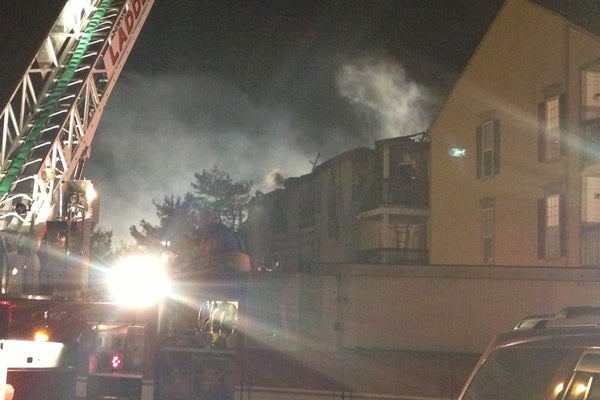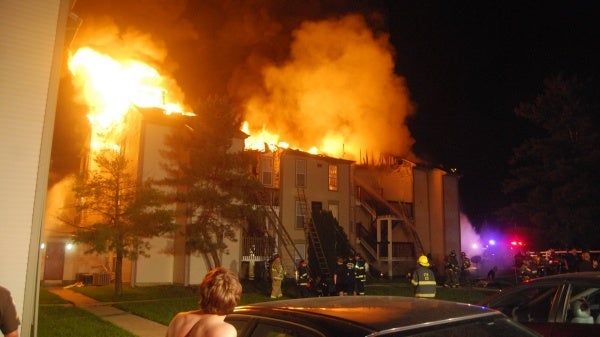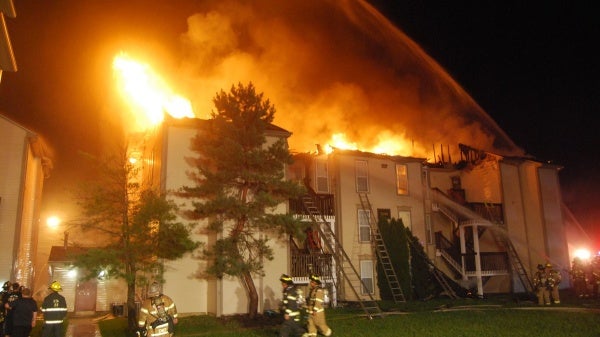New Jersey’s schools face big changes in the year ahead
From beefed-up evaluations, to revamped curriculum and testing, to takeovers of urban districts, there will be interesting days ahead.
The 2013-2014 school year is here – and it’s not likely to be easily forgotten by New Jersey’s 100,000-plus teachers, for good or ill.
After years of debate and discussion, a new statewide evaluation system will for the first time measure teachers by their own and their students’ performances.
The change comes at the same time that new national curriculum standards continue to make their way into New Jersey’s classrooms and to reshape the state’s approach to testing.
Add the ongoing financial pressures on schools and the range of new and revised government mandates.
That doesn’t even include the special pressures on the state’s most troubled districts — including Camden, the latest district to come under state control.
And did we mention November’s election for governor and the full Legislature, the results of which are likely to touch off even more changes?
So, in honor of the new school year and the uncertainties it brings even in less-eventful times, here are a few questions about what lies ahead for New Jersey:
How big a difference will the new teacher-evaluation system make in this opening year?
It’s been talked about since the new teacher tenure law was enacted in the summer of 2012 — the day that every school district would need to have in place a system to annually grade teachers on a four-point scale from “ineffective” to “highly effective.”
Ready or not, that day is here. Now the question is how districts will incorporate the evaluations into their schools’ daily operations and ultimately bring more accountability to their teaching forces.
A big part of the equation will be determining how well each teacher’s students perform, be it on state tests or based on new “student growth objectives” that in many cases are still to be decided.
Even with the deadline here, this could still take some time — especially when it comes to the student performance measures, which have yet to be really tested, let alone verified. State officials have said that not all districts are necessarily even prepared to implement new classroom observation systems.
Officials in many of the districts that had a head start on the process say that, at the very least, the discussions about teacher and student performance have proven fruitful in changing the climate and culture of their schools.
But that was before the actual ratings started to be handed down for individual teachers, which will happen at the end of this school year, with teachers’ tenure protections now at stake.
In this first year of state control, what impact will the Christie administration and its new, young superintendent have on Camden public schools?
It’s put-up time for Gov. Chris Christie and his pledge to improve what is arguably New Jersey’s most troubled school system, with the state’s takeover announced last spring and his August appointment of 32-year-old Paymon Rouhanifard as Camden’s new superintendent.
Coming with a $210,000 salary, the appointment was an interesting choice. Rouhanifard was a central office administrator in New York City’s vast public school system, followed by a one-year stint in Newark. Including two years spent teaching, he has had all of six years of experience in public education.
But hand-picked by the governor and his education commissioner, Chris Cerf, Rouhanifard drew wide praise from a range of reform-minded groups as the kind of innovator needed to turn around a district where only about a third of the students pass the state’s tests and virtually all of the schools are among the state’s lowest performing.
The reaction has been polite but cooler from the Camden community, although with none of the hostility that greeted and continues to dog the state’s takeovers elsewhere, especially in Newark.
What and whether Rouhanifard learned from his short stay in Newark and how he interacts with the Camden community will be an early test.
Given the timing, he’ll have to hit the ground running. The administration has done some advance work, with five new principals already on the rolls, a full inventory and budget analysis completed, and a number of other programmatic changes at least under way.
But he’ll also have the extra challenge of overseeing a district that will likely be shrinking before his eyes.
In 2014, Camden will be home to the first of the state’s “renaissance schools,” a new form of charter-like schools slated to ultimately draw more than 2,000 city students. The continued growth of more traditional charter schools is expected to further deplete enrollment in the public-school district.
This isn’t foreign territory to Rouhanifard, who oversaw charter school co-locations in New York City, but the flip side is it will also mean far fewer resources will be available for the district schools he is charged with improving.
If reelected, where does Gov. Chris Christie go from here with his education agenda?
Although other issues have gotten their share of attention, education has certainly drawn a bright spotlight in Christie’s four years as New Jersey’s governor.
The first year, it was largely about funding of public education, with Christie cutting more than $1 billion in state aid at the same time as implementing tight caps on property tax increases and superintendent pay.
Along the way, he angered the state’s teachers unions and fired his education commissioner over his failure to win federal Race to the Top funding.
Since then, his non-financial reform agenda under Cerf’s leadership has taken on more prominence, including the appointment of a new superintendent in Newark and what is likely to be Christie’s education capstone — the new teacher tenure reform law.
But that leaves the governor plenty of unfinished business if he is reelected in November and sets his next sights on the White House, as many predict.
Will Christie renew his push for school vouchers, the one key reform proposal that he failed to win in the last four years? Will he take another try at eliminating teacher seniority protections, known as “last in, first out,” which was left untouched under the new tenure law?
A bigger and more lasting impact could be Christie’s ongoing quest to remake the state Supreme Court, with his crosshairs especially on reversing or at least watering down the Abbott v. Burke school equity rulings that have largely dictated education funding in the state for close to 30 years.
So far, Senate Democrats have stalled Christie’s top court appointments. But will that logjam hold after the election?
Of course, all bets are off if Democratic challenger Barbara Buono pulls off the upset in November and brings her own yet-to-be-defined education agenda to the Statehouse.
In all, it leads to a school year – and a year for schools — that should bring plenty of drama and intrigue to a public education system that in recent years has seen more than its share already.
________________________________________________
NJ Spotlight, an independent online news service on issues critical to New Jersey, makes its in-depth reporting available to NewsWorks.
WHYY is your source for fact-based, in-depth journalism and information. As a nonprofit organization, we rely on financial support from readers like you. Please give today.











